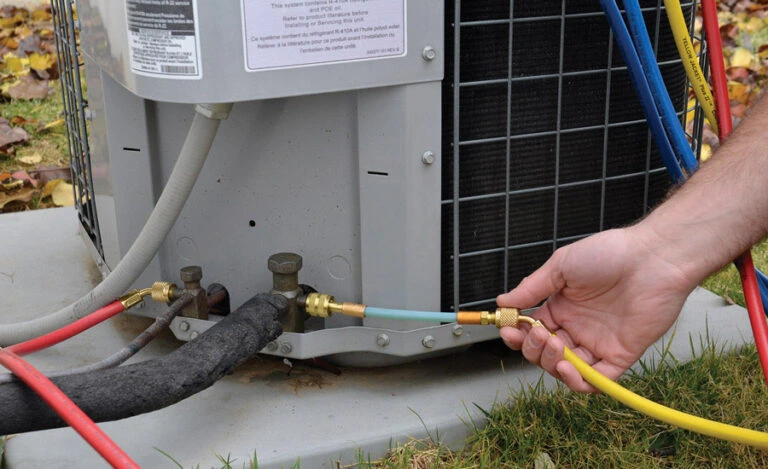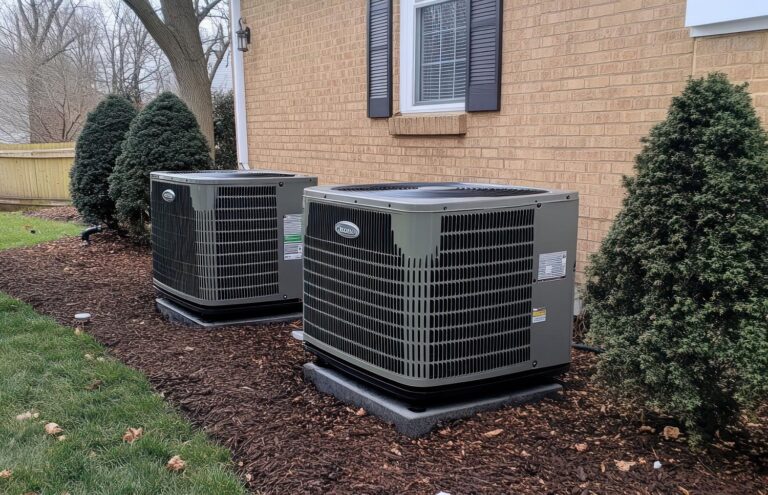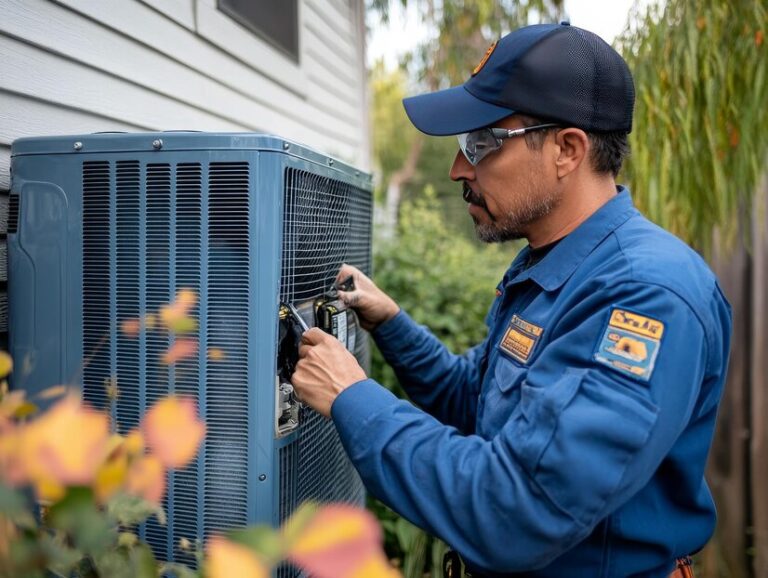A heating or cooling system is a significant investment, and it only makes sense to get as much use out of it as possible. In general, most HVAC systems will last 15 to 25 years, but depending on the type of system and other contributing factors, that estimate can be highly variable. Even with HVAC maintenance and regular repairs, eventually, even the best boilers, furnaces, heat pumps, and air conditioners today will run their course.
Typical HVAC Life Spans
The service life of an HVAC system depends on its type. Here are the typical life spans for common HVAC equipment:
- Furnaces: With proper maintenance, gas furnaces typically last 20 to 30 years or even longer. Usually, a furnace is replaced when the heat exchanger starts leaking, as it’s one of the most critical and expensive components. Systems that are poorly maintained or of questionable quality may last as little as 10 years, while oil furnaces typically last only 10 to 15 years due to maintenance problems caused by inefficient fuel.
- Boilers: Boilers often last slightly longer than furnaces, with an average life span of 20 to 35 years. Usually, they are replaced when the heat exchanger starts leaking.
- Air conditioners: Most air conditioners will last 15 to 20 years, though some may last closer to 10. In coastal areas, they typically last only seven to 12 years due to salt exposure. Both air conditioners and heat pumps are usually replaced when the compressor fails or the condenser develops significant corrosion and leaks.
- Heat pumps: Heat pumps can last 10 to 20 years, depending on usage frequency, though 15 is average. Functionally, heat pumps are similar to air conditioners, but because they can provide both heating and cooling, they are typically used longer each year. Heat pumps in coastal areas will also fail prematurely, with typical life spans of seven to 12 years.
- Ductless mini-splits: Like heat pumps, ductless mini-splits can provide both heating and cooling, with a typical life span of 10 to 30 years, except in coastal areas.
While these are the most common life spans, many homeowners choose to replace their HVAC system sooner. As the system ages, it will gradually become less reliable and efficient, increasing repair and utility costs. Once a system is 10 to 15 years old, the monthly energy savings from upgrading to a newer, more efficient model can often justify the initial investment, especially if the current system is unreliable or has major problems.
Factors That Affect HVAC Service Life
There are many things that can reduce the life span of HVAC equipment, including:
- Poor maintenance practices
- Poor initial quality or defective components
- Oversizing or under sizing the system
- Improper installation procedures
- Inordinately high usage or high loads
- Improper usage, such as heating or cooling with windows and doors open
- Installation in salty or corrosive environments, such as coastal areas
Of these, poor maintenance and oversizing are the most detrimental. A lack of maintenance can lead to accelerated component wear and a dramatically shorter life span, while oversizing can cause frequent on-and-off cycling, leading to compressor or blower motor failure. Additionally, air conditioners or heat pumps in coastal areas will also see significantly reduced life spans due to salt corroding the condenser unit. With preventive maintenance plans, HVAC systems will last longer because small issues are caught before they require costly fixes.
5 Ways Your Local HVAC Contractor Can Help
When you experience issues with your HVAC system in Georgia, consider a local HVAC company. Our team at Conditioned Air is ready to help! We provide:
- HVAC Repairs: When regular HVAC issues occur, you can count on our team at Conditioned Air for fast service and reliable HVAC repairs.
- HVAC Installations: Whether you are upgrading from a system that is inefficient and expensive to repair, you are adding air conditioning to a home that lacks it, or you are installing an HVAC system in a new home, you can count on our team at Conditioned Air for quality, energy-efficient installation.
- HVAC Replacements: If your HVAC system is showing its age, an HVAC replacement may offer several benefits, including improved comfort, lower utility bills, and fewer repair costs.
- HVAC Maintenance: Though HVAC systems are built to last, they can only continue to perform well and efficiently if they’re well-maintained. Not only does regular maintenance increase efficiency, but it also minimizes the chance of breakdowns and could lower your utility costs.
- Emergency HVAC Services: Whatever your HVAC emergency may be, Conditioned Air offers 24-hour repair services.
Hopefully you gained some valuable knowledge from this post. If you have any further questions or would like to have one of our technicians come out and give you a free quote, please feel free to contact us at (305) 967-4684 or visit our website https://www.airnewsolutions.com.







